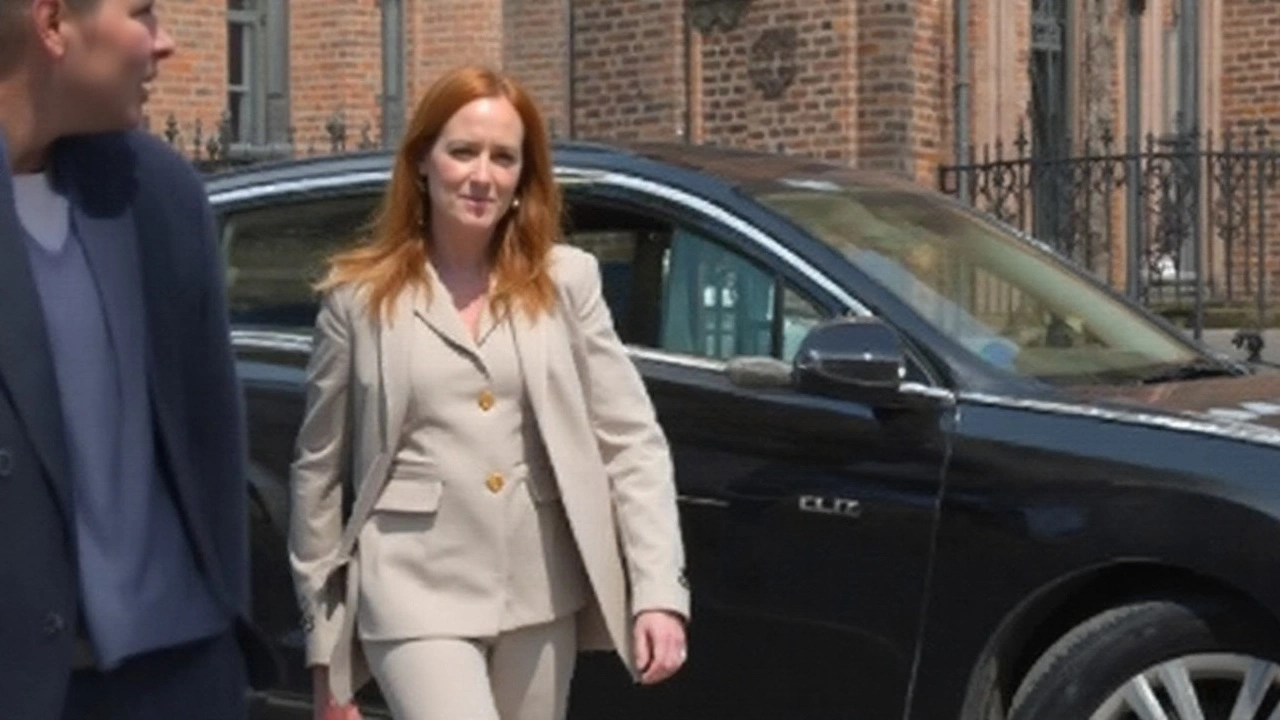What happened and why it matters
Angela Rayner has resigned as Deputy Prime Minister after the government’s independent adviser on ministerial interests ruled she breached the ministerial code over a property transaction that cut her stamp duty bill by around £40,000. The flat, on England’s south coast, was bought using arrangements that appear legal but jar with her long-standing public stance against tax avoidance. The ruling, delivered by Sir Laurie Magnus, forced the first major resignation of this government and set off a fierce argument about standards, leadership, and political credibility.
Rayner’s exit lands at the point where optics and rules collide. On paper, the deal saved money in a way many accountants would recognize: using available reliefs to reduce tax on a property purchase. In politics, the picture is harsher. As a minister who has spoken bluntly about fairness and responsibility, and as a senior figure who has said “tax avoidance kills,” the contrast could not be starker. That gap—between what is lawful and what looks right to the public—has turned a technical decision into a national argument.
The independent adviser’s job is to examine whether ministers meet the standards set out in the ministerial code, a rulebook covering integrity, accountability, and conflicts of interest. The adviser can investigate, request documents, and reach findings, but the Prime Minister decides the final sanction. In this case, Keir Starmer referred the matter to Sir Laurie Magnus and later accepted Rayner’s resignation when Magnus concluded the code had been breached. Allies say that shows due process working. Critics say it looks like a Prime Minister hiding behind procedure.
Why does a stamp duty saving carry such punch? Because tax is about trust. Ministers are expected to act not only within the rules but in a way that reassures voters the system isn’t gamed by those in charge. A £40,000 saving might be a rounding error in government accounts, but it is not a rounding error to a voter trying to buy a home. In the middle of a cost-of-living squeeze and a housing crunch, the optics are brutal.
Rayner’s role made that harder still. As housing minister, she was responsible for policy in an area where the tax and fairness debates are constant—second homes, landlord incentives, help for first-time buyers, and the impact of stamp duty on chains and pricing. When the minister in charge of housing is judged to have benefited from arrangements that reduce property taxes, the charge of “one rule for them, another for everyone else” writes itself. Rayner had used that line against Conservative ministers in the last parliament. Now it’s boomeranged back.
Supporters argue there’s a line between lawful planning and illegal evasion. They note the property deal was, as far as anyone has set out, within the rules. But the ministerial code is about more than avoiding criminality. It asks ministers to avoid even the appearance of a conflict between personal interest and public duty. That is why the independent adviser’s finding matters—and why resignation became unavoidable once it landed.
Keir Starmer’s handling of the storm is now part of the story. He sought cover in process, sending the case to the adviser rather than making a snap judgment. Defenders say that’s exactly what the adviser is for, and that it protects the system from knee‑jerk decisions. Detractors see something else: a cautious leader who hesitates at moments that require a call. The “robotic” label that followed him in opposition has surfaced again among critics who wanted a firmer, faster decision.
The broader standards picture isn’t flattering for Labour either. The government came in promising to clean up politics after a series of Conservative scandals. Yet the published registers of interests show Labour ministers, including Starmer, accepting tens of thousands of pounds in declared gifts and hospitality from donors and backers. Nothing in those entries suggests a breach of rules; hospitality is allowed if declared. But it rubs against the party’s rhetoric and weakens the moral high ground it claimed. Voters rarely parse the fine print of standards regimes. They react to patterns.
Rayner’s resignation also changes the feel of the top team. She brought an authenticity that cut through Westminster’s stiff, technocratic tone—a plain‑spoken style that connected with people far from SW1. Losing that voice makes the government look narrower, more managerial. That matters when inflation, rent hikes, and long NHS waits are testing patience across the country. People want to believe ministers “get it.” A cabinet that looks all suits and spreadsheets risks the opposite impression.
There’s another headache: this is not an isolated resignation. In recent months, a homelessness minister left office after a row over evictions and rent increases, and an anti‑corruption minister resigned amid separate corruption charges lodged overseas. Each case has its own facts, but together they power a narrative the opposition—and many voters—find easy to understand: standards problems keep tripping up a government that promised to be cleaner and steadier. That story arc matters more than any single name on a resignation letter.
Money is the thread running through it all. The £40,000 figure is doing damage because it’s simple and tangible. It also sits next to a daunting fiscal backdrop. Britain’s national debt is about £2.9 trillion. Ministers warn of hard choices, tight budgets, and the need to rebuild public services carefully. Against that, a senior minister shaving tens of thousands off a personal tax bill becomes a symbol, fair or not, of a political class cushioned from the choices they impose.
So what exactly does a ministerial code breach entail? The code expects ministers to avoid conflicts of interest, be transparent about their financial affairs, and act in a way that sustains public confidence. Breaches can lead to apologies, corrections to the record, repayment, or resignation. The independent adviser investigates and reports to the Prime Minister. The PM then decides. That separation is meant to protect the process from political heat while keeping the PM accountable for the outcome.
Sir Laurie Magnus, a former banker who took on the advisory role to clean up the standards regime, has pushed for clearer rules and the power to open his own probes. His involvement in this case gives the finding weight. When that adviser decides a breach occurred, the path to resignation is short—shorter still when the minister’s public brand is built on moral clarity.
The Labour Party now faces three immediate tasks. First, it needs a replacement deputy to steady the machine and project unity. Second, it must show how it will tighten standards inside government: clearer guidance on property ownership, tougher declarations, perhaps stricter internal checks. Third, it has to reset the message on tax fairness and housing, two areas where this episode has cut deepest. None of those moves are easy, and all of them will be tested quickly in parliament, the media, and voters’ living rooms.
Expect the opposition to lean hard into the charge of hypocrisy. The “you’re no better” line becomes potent when it lands. The government’s counter will be to point to due process, transparency, and action taken—investigation commissioned, ruling accepted, resignation offered and accepted. Whether that convinces will depend less on the words and more on what follows: who gets promoted, how openly ministers publish their interests, and whether there are further surprises buried in the registers.
Inside Labour, the reaction is mixed. Some MPs see an avoidable mess—avoidable because political judgment should have weighed the optics before the adviser ever got involved. Others fear a wider chill, where ministers grow so scared of missteps that they become overly cautious, dragging policy down and slowing reforms. A few argue the party needs to own the mistake, fix the rules, and move on fast, rather than defend the indefensible and bleed credibility week by week.
There are still unanswered questions. Did the transaction, while legal, cross any other boundary in the code, such as full transparency at the time of purchase or later declarations? Will there be any tax authority review, even as a formality? Are there other property interests—held by any ministers—that need a second look? And what does the government plan to change in housing tax policy to show it learned something from this mess? The answers matter because they show whether this was a one-off lapse or a sign of looser attitudes.
The housing policy angle is critical. If ministers want credibility on affordability, planning reform, and rental stability, they need to show their own arrangements match their public goals. That could mean tightening the rules around ministerial property holdings, or setting a higher bar for disclosure of any tax‑reducing moves on property. Voters may not relish the detail, but they notice when ministers put their own skin in the game.
Perspective helps. Governments of all stripes have lost ministers over the ministerial code. Sometimes the breach is clear and serious; sometimes it’s technical but politically toxic. The through‑line is simple: standards shape the story a government tells about itself. This administration chose integrity and competence as its calling card. This episode puts a dent in that card and invites opponents to keep tapping it every time the government asks for trust.
Rayner’s personal story isn’t irrelevant either. She came up through trade unions, built a profile as a straight talker, and connected with voters who don’t like political varnish. That’s why this hit so hard. When a politician’s strength is authenticity, any gap between words and actions becomes a canyon. Her departure doesn’t erase that connection, but it does leave a void—and it hands opponents a tailor‑made contrast to draw at election time.
For Starmer, the choice is now about rhythm. He can push a quick reset—announce a successor, roll out a standards package, and put ministers on a tighter declaration timetable. Or he can wait, gather advice, and risk more days of headlines about hesitation. The government’s reform agenda—on growth, energy, NHS waits, and housing—depends on the public granting a basic level of trust. You don’t get that trust with lectures or legalisms. You get it by matching your rules to your rhetoric.
Here’s the bottom line voters will weigh in their own way: if ministers talk tough on tax fairness, they need to live by the spirit of that standard, not just the letter. If the government promises clean hands, it needs to show them early and often. Done right, a standards shock can reset a culture. Done slowly, it becomes the background noise that drowns out everything else.

The politics behind the fallout
To gauge the real impact, watch three things in the next few weeks. First, who gets the deputy role and housing brief, and whether that person can speak convincingly to renters and first‑time buyers. Second, which standards reforms reach the light—tighter rules on hospitality, clearer property declarations, perhaps a tougher sign‑off process before ministers complete complex transactions. Third, whether any more skeletons appear. It’s rarely the first scandal that brings a government low; it’s the sense that stories keep coming.
Critics will keep using the word “hypocrisy.” The government will keep pointing at the process and the resignation. Between those poles sits the public, who mostly want two simple things: don’t take them for fools, and don’t make their lives harder. That’s the test that started with a £40,000 stamp duty saving on a coastal flat and now reaches far beyond one address or one minister.
If the government wants to turn the page, it needs less sermonizing about values and more proof. Publish, explain, move swiftly, and don’t treat a rulebook like a shield. Most of all, pick a course and own it. Politics forgives mistakes faster than it forgives wobble.




